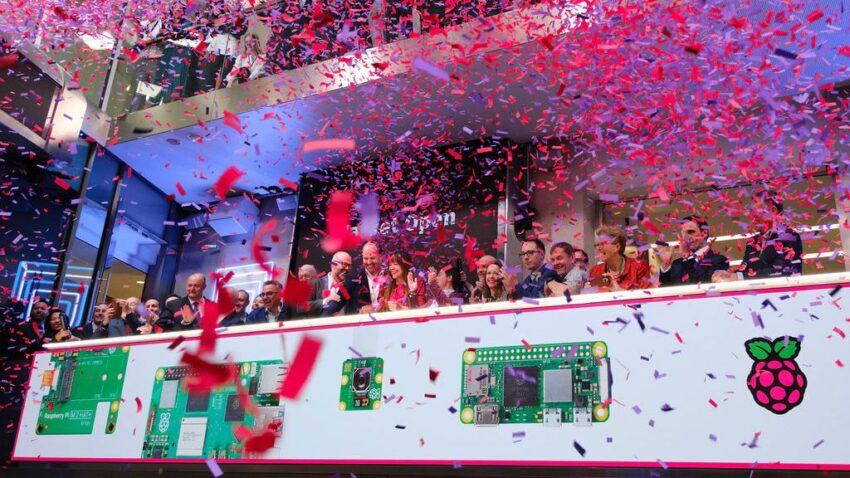Raspberry Pi, the UK-based maker of affordable microcomputers, has reported stronger-than-expected profits in its first financial update since going public on the London Stock Exchange in June.
The company, which raised £178.9 million through its initial public offering and joined the FTSE 250, saw year-on-year sales jump 61% to $144 million in the six months to June 30, while pre-tax profit remained steady at £10.8 million.
The company’s shares experienced a surge of over 10% on Tuesday, finally settling at a 6.6% increase at 371.25p. Raspberry Pi’s contribution to its first-half performance was significant, selling 1.1 million units of its latest model, the Raspberry Pi 5, launched in October 2023. This surpassed the company’s internal expectations.
Despite the recovery from pandemic-induced supply chain disruptions, Raspberry Pi continues to experience some challenges, particularly with semiconductor supply. CEO Eben Upton explained that lingering demand imbalances, caused by over-ordering during shortages, are slowly correcting.
Jefferies analysts pointed out that despite potential slight weakness in the second half due to ongoing inventory adjustments and lower-value product sales, the 2025 outlook still looks positive. They anticipate favourable memory pricing and increased sales.
Raspberry Pi, initially established as a charity in 2008 to promote computer science studies among young people, has turned into a commercial success. Despite going public, Raspberry Pi Foundation still holds a significant 47% stake in the company. The company has broadened its product range, introducing new AI hardware in collaboration with Hailo AI, and launching its inaugural cloud product, Raspberry Pi Connect. For just $6 annually, this product provides remote device access.






